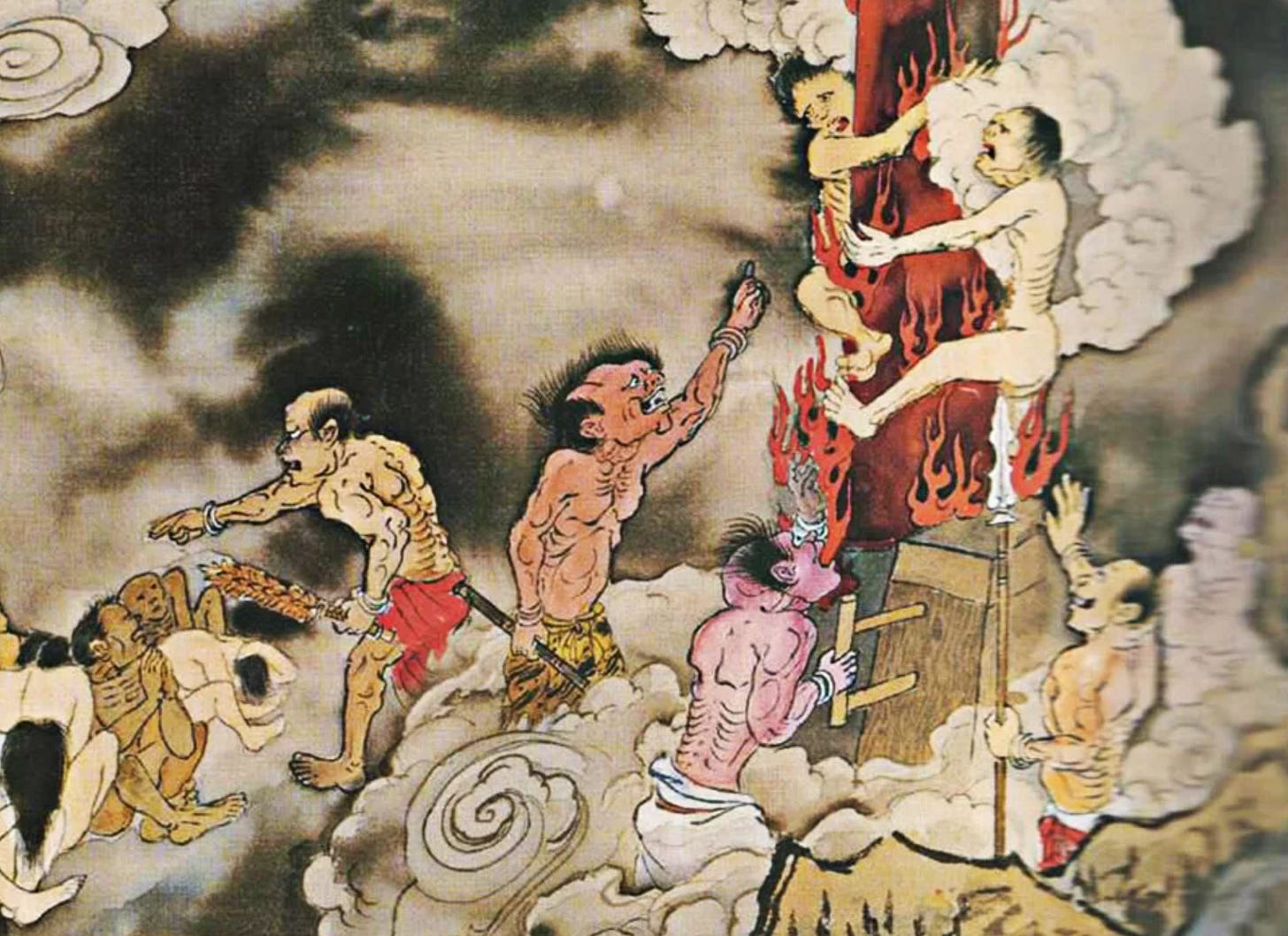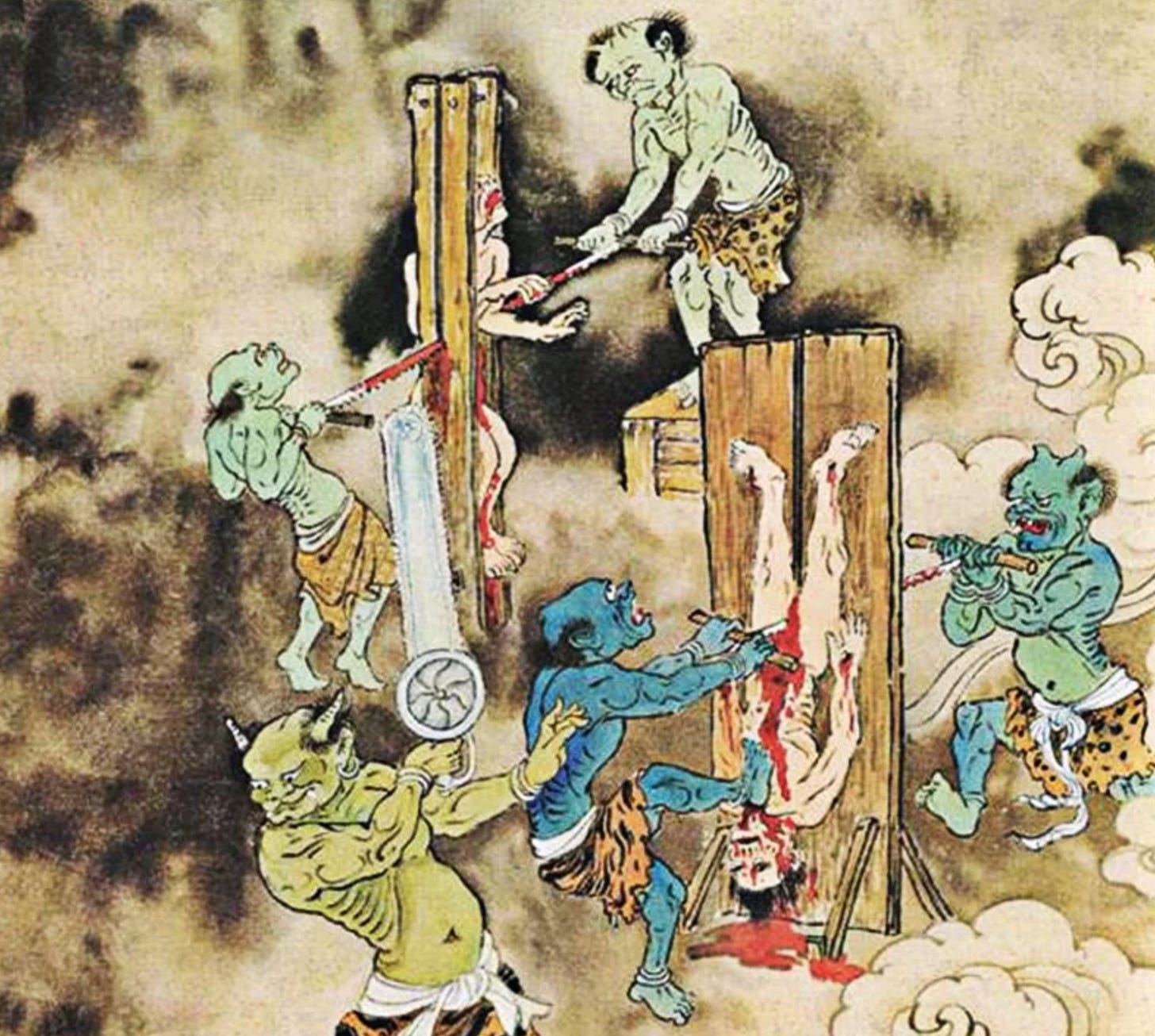Hello and welcome to What China Wants.\
Today we’re taking a break from the History of China series and riffing on the upcoming festive season. Given the Anglo tradition of the Christmas Ghost I thought I’d introduce you to a few hauntings from the East.
Chinese culture is littered with the supernatural. Despite decades of staunchly anti-superstition communist rule, a fear of the supernatural pervades Chinese culture. Ghosts are everywhere – geographically and in terms of their spread across Chinese society in general - and the spirits of dead people invoked for the widest range of reasons.
On a Singapore island is a grave of a German girl who fell to her death during the roundup of German nationals at the start of WWI; somehow this has acquired celebrity status amongst the wider Chinese community for bringing gambling luck, and many people go to the shrine built above her final resting place to pray for luck on the dice.

Anyone that has spent time in Chinese societies will know that Lion dances are a common-enough sight – common enough, in fact, that “professional lion dancer” is a career. These aren’t just for fun, but are performed with much earnestness to scare away ghosts and evil spirits.
And I’ve heard it said that casinos are full of ghost geese, employed by the management to gobble away the punters’ luck.
This fear of the supernatural is real and measurable, as the Hong Kong property market illustrates. An American professor of finance at the Hong Kong University of Science and Technology, Utpal Bhattacharya, has researched the impact of unnatural deaths and the associated fear of hauntings on real estate prices. The prices of “haunted” flats can be 20% below market rate, and not only that, but neighbouring units can see their value decrease from between 7-10%.
We rented our own flat in Hong Kong, overlooking the Chinese Christian cemetery, at below market rate for this exact reason.
With the Communist Party pushing for the end of superstition in China (good luck with that), it is little wonder that there are periodic bans of ghost-related media like movies. This is also perhaps because over the years ghosts have been used as a metaphor for corrupt government officials.
Most ghosts in China are, however, harmless. The same can’t be said of another belief that is widespread in the country, that of the horrific concept of Diyu.
Diyu is the traditional Chinese Hell. Based on the Buddhist tradition of Naraka, it is an underground maze of 18 levels where souls are taken after death to atone for whatever sins they committed whilst alive.
A similar construct was invented by Dante, but the Italian had nothing on what happens in the Chinese equivalent, not least because he only envisaged nine circles of Hell.

The Chinese levels start as they mean to go on, with the Chamber of Tongue ripping. “Those who stir up troubles by gossiping will find their tongues being ripped out.”
The next is reserved for those who have broken the marriage of another; they have their fingers cut off with scissors.
The next few are pretty standard fare – arsonists tied to red hot copper poles, rapists boiled in oil, murderers forced to climb a hill of knives, and so on.
Some of them don’t actually sound that bad. Those who fail to respect others are merely soaked in blood, and animal abusers abused by animals in return, which wouldn’t be too rough if you‘d mishandled a rabbit.
But then it all starts to get a bit petty, at least in Western eyes. Food wasters are force-fed hellfire by demons, hypocrites get put in a steamer, and, in a ruling that will give a few lawyers I know some sleepless nights, those who exploit the loopholes in the law and engage in unfair practices in business will be sawn into half by demons.
How MR James, the doyen of English ghost writing, would have enjoyed getting to grips with the Chinese supernatural.



